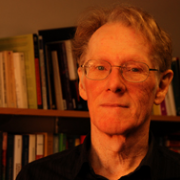Seeing Like a City
Warren Magnusson
Professor of Political Science,
University of Victoria
Abstract
How are we to understand politics? We usually think of it as something related to “the government” or – as political scientists would say – “the state”. This is not wrong, but it is misleading. It leads to false hopes and fears, and induces us to forget much of what we know about the ways in which we are governed (and govern others), the forms of authority that we generate or confront, and the instability and unpredictably of the world(s) in which we live our lives, individually and collectively. To see those worlds through the cities in which we live, and to come to understand the world as a whole as a city, is to confront our political problems more directly and fruitfully. Following on from his recent book (Politics of Urbanism: Seeing Like a City), Warren Magnusson will illustrate this argument with reference to contemporary politics in Victoria. How might we see what we do politically through our actual engagements with urban life?
Warren Magnusson is a political theorist with a particular interest in the urban and the local as sites of politics and government.His most recent book, Local Self-Government and the Right to the City (2015) connects work he did at the beginning of his academic career to more contemporary concerns. He argues that the “right to the city” has to be understood in relation to the principle of local self-government if we are to make sense of our democratic possibilities. In a slightly earlier book, Politics of Urbanism: Seeing Like a City (2011), he argues that we must make the city rather than the state the main object of our analytical (and political) attention. These two books complete a trilogy that began with The Search for Political Space (1996), an exploration of the potential for progressive urban politics.

